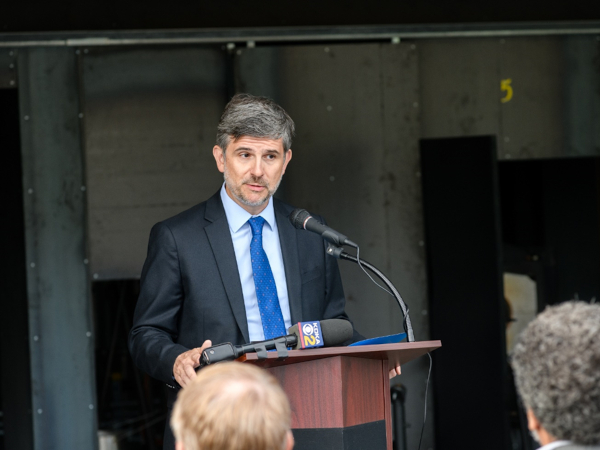Date: 22 June 2005
MONEYWEB: Did you ever meet Stewart Jennings, the chief executive?
DAVID SHAPIRO: No, he was too young.
MONEYWEB: Clearly the business is continuing to expand and do pretty nicely. Its an interesting history, though listed initially, bought then by SA Breweries. Then delisted from the stock market. And I see now you seem to be raising your profile again. You are going to be expanding, spending another billion rand in your facilities in South Africa. Does that suggest that you might be looking to relist?
STEWART JENNINGS: Not at the moment, Alec. Were actually very happy being private, and weve enjoyed a very nice run, really, since we were unbundled from Breweries. And you may recall that D'Ieteren, a Belgium company, acquired us, chiefly to buy our overseas fitting operations in Europe and the United States. They really went into manufacturing. And just after that, we did a leverage buyout, which was early in 2001. And since then, the company has been growing rather nicely. Weve gone through some tough times with the strong rand, but weve weathered the storm quite well.
MONEYWEB: Thats quite interesting. Did you do the leverage buy out at the same time as PG Bison?
STEWART JENNINGS: No, quite a long time after that.
MONEYWEB: Because theres has been incredibly successful.
STEWART JENNINGS: Yes, it has.
MONEYWEB: I guess yours as well?
STEWART JENNINGS: It has, indeed. Weve tried to keep a low profile, probably purposely, and its worked very nicely for us.
MONEYWEB: Just explain what a leverage buyout is.
STEWART JENNINGS: What we did is, we approached D'Ieteren, and we purchased the company through loan finance, basically financed with our chairman, Ronnie Lubner, and about 30 of the management team. And we acquired the finance and purchased the company.
MONEYWEB: So you got into hock yourselves, the managers, and hopefully since 2001 youre now repaid all your debt.
STEWART JENNINGS: We have. We are debt-free at the end of last year.
MONEYWEB: And this further expansion of another billion rand?
STEWART JENNINGS: Well, its very exciting. We are actually doubling our capacity at Springs in our float line.
MONEYWEB: Whats a float line?
STEWART JENNINGS: You float glass on molten tin, and we manufacture 140 000 tons of glass a year. You first of all melt the glass, melt the raw materials, which basically are silica, sand which we get from Delmas, soda ash, limestone and dolomite. And then you float it on a bed of molten tin. The process was developed by Pilkingtons in the early 60s, and has been advanced and developed since then. Its the only process really to make quality glass. I know the Chinese have some cheaper processes, and relatively inferior glass. But its the most cost-effective and most quality way of making glass
MONEYWEB: I guess thats one thing where you must be at some advantage to other manufacturers that the Chinese would find it difficult to transport the glass, because I guess it breaks easily.
STEWART JENNINGS: Not really. We are major exporters ourselves, particularly of automotive glass. About 45% of what we make on the automotive side is exported, and glass is transported all over the world even raw glass in sheets, because once you have glass in a pack, its pretty robust. And some of the problem, of course, is you have cheap Chinese imports coming in, which is of inferior quality, but its OK for low-cost housing and low-quality purposes.
MONEYWEB: But you are able to compete with the Chinese?
STEWART JENNINGS: Yes and no. The strong currency has hurt us quite badly. Weve also had glass coming in at very low dump prices, theres no doubt about that. And its very difficult with the strong currency to compete adequately with them. But fortunately, the economy has grown nicely and our other benefit is our quality glass. For architectural glass, high-spec glass for automobiles, you have to use high quality glass.
MONEYWEB: Thats quite interesting, David. In other words, if you are finding competition from China, there is one of two ways of addressing it. Probably the most obvious way is to push up the quality of and take it higher up.
DAVID SHAPIRO: Top end of the market, sure.
DAVID SHAPIRO: I remember, especially in South Africa, where you have a high number of days of sunshine, they develop the glass which reflects so much of the sun and makes it much cooler inside. These are all products which are at the high end of the market. I dont know if you still do those things.
STEWART JENNINGS: Absolutely. More and more, solar glasses are becoming very, very popular, and developing at a very fast rate. And in the automobiles too, all glass in automobiles is solar glass. It's a green coloured glass. And in our new float line, we are going to manufacture predominantly automotive glass.
MONEYWEB: Our thanks to Stewart Jennings, an interesting story.







Add new comment